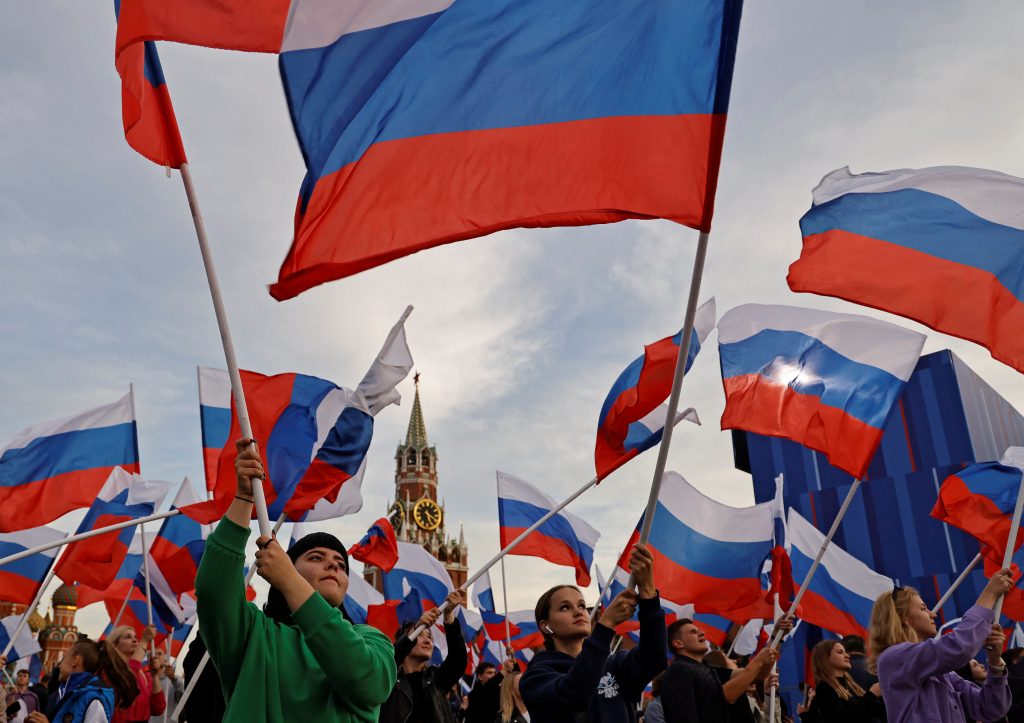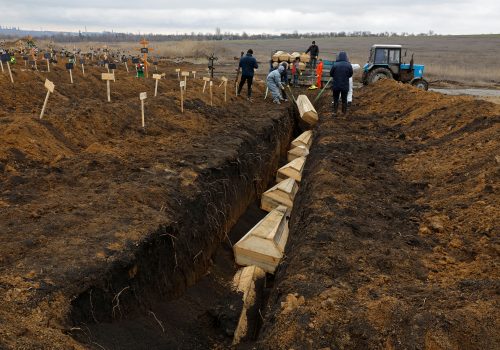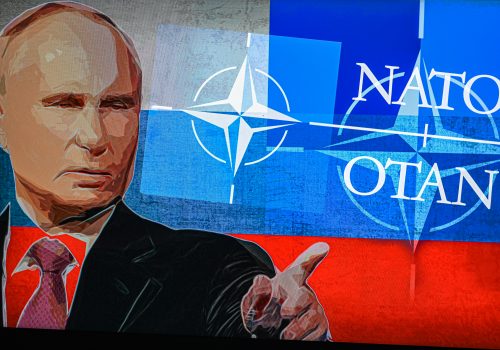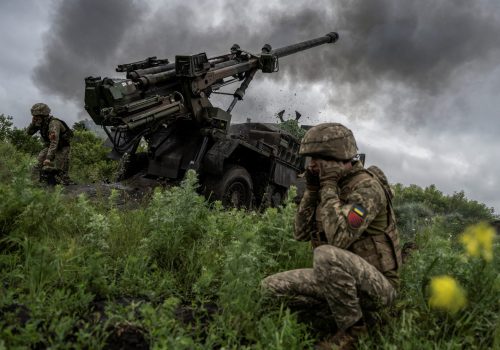Despite some indications of war weariness, most Russians continue to support their country’s invasion of Ukraine, according to a comprehensive new report published this week. Based on polling and focus groups conducted by Russia’s only internationally recognized pollster, the Levada Center, and the Carnegie Russia Eurasia Center, the report found that the majority of Russians had “gotten used to” living against the backdrop of a brutal armed conflict and had consolidated around the Kremlin. “Naive predictions that popular discontent triggered by sanctions and the wartime restrictions imposed on daily life would bring down Vladimir Putin’s regime have come to nothing,” it noted.
This latest attempt to gauge pro-war sentiment in Putin’s Russia tallies closely with the Levada Center’s own monthly surveys since February 2022, which have found that around three-quarters of Russians consistently support the invasion of Ukraine. At the same time, the report’s authors warned against attempts to portray all Russians as enthusiastic backers of the war. Instead, they argued that support can be divided into a minority of “turbo-patriots” and an apathetic majority that has accepted the Kremlin’s pro-war propaganda and reconciled itself to the new wartime reality in the country.
Stay updated
As the world watches the Russian invasion of Ukraine unfold, UkraineAlert delivers the best Atlantic Council expert insight and analysis on Ukraine twice a week directly to your inbox.
Debate has raged for the past twenty-one months over the true extent of Russian public support for the invasion of Ukraine. Many continue to question the validity of polls conducted in wartime Russia, with skeptics arguing that very few members of the public would be comfortable expressing anti-regime opinions to strangers. Indeed, given the draconian legislation adopted in Russia since February 2022 criminalizing criticism of the invasion, there is good reason to treat all research data coming out of the country with caution.
While there are legitimate doubts over the credibility of polling data, the findings detailed in this new report and the Levada Center’s more regular monitoring both closely mirror the available anecdotal evidence, which indicates high levels of public acceptance for the ongoing invasion. Perhaps the most compelling evidence has come from personal interactions between Ukrainians and their Russian relatives. With family ties connecting millions on both sides of the border, there has been ample opportunity for Ukrainians to get a sense of how ordinary Russians feel about the war. This has led to countless painful conversations, with Ukrainians frequently finding that people they have known all their lives now parrot Kremlin propaganda, blame Ukraine for the war, or deny core aspects of the invasion altogether.
Eurasia Center events

The almost complete absence of any meaningful anti-war activity in Russia is a further indication of public support, or at least acceptance, of the invasion. During the first weeks of hostilities, there were some attempts to hold anti-war rallies in a number of Russian cities, but these modest efforts soon ran out of steam. Some commentators have since argued that it is simply too dangerous to protest. However, wartime restrictions have not prevented Russians from freely voicing their opposition to various specific aspects of the invasion.
Since Putin first announced mobilization in September 2022, Russian soldiers and their family members have recorded and published hundreds of individual protest videos complaining about everything from poor conditions and lack of equipment to heavy losses and suicidal tactics. These publicly available addresses have often been highly critical of the Russian authorities, raising obvious questions about the validity of claims that Russians are afraid to oppose the state. Tellingly, there have been almost no videos of soldiers condemning the war itself or refusing to follow criminal orders, despite an apparent readiness to go public with their often explosive grievances.
The more than one million Russians who are believed to have fled the country following the full-scale invasion of Ukraine have also proven largely unwilling to voice their opposition to the war, despite not facing any of the restrictions in place inside Russia itself. While there are large Russian diasporas in multiple cities across Europe, there have been very few anti-war rallies since February 2022 or any other attempts by Russian citizens to protest against the invasion being carried out in their name. When Russians in Finland did recently mobilize to protest, it was to complain against the temporary closure of some border crossings with Russia.
All this is very good news for Vladimir Putin. The Russian dictator had initially hoped to secure a rapid military victory in Ukraine, but he is now actively preparing his country for a long war. He has already moved much of the Russian economy onto a war footing, and seems to have succeeded in convincing the vast majority of his compatriots that they are engaged in a struggle with the West that is both existential and unavoidable. With his home front looking remarkably stable and no sign of any domestic challenges on the horizon, Putin can look ahead to 2024 with a degree of confidence.
These latest indications of continued Russian public support for the war will further dampen any lingering hopes in Western capitals that internal opposition could yet derail the Russian invasion. The timing is particularly unfortunate, with talk of a battlefield stalemate in Ukraine already fueling doubts over the future of Western military aid. For now, Western leaders remain adamant that they will continue to stand with Ukraine for as long as it takes. However, they are extremely unlikely to be aided by any kind of anti-war uprising inside Russia itself.
Peter Dickinson is editor of the Atlantic Council’s UkraineAlert service.
Further reading
The views expressed in UkraineAlert are solely those of the authors and do not necessarily reflect the views of the Atlantic Council, its staff, or its supporters.

The Eurasia Center’s mission is to enhance transatlantic cooperation in promoting stability, democratic values and prosperity in Eurasia, from Eastern Europe and Turkey in the West to the Caucasus, Russia and Central Asia in the East.
Follow us on social media
and support our work
Image: People wave Russian flags in Red Square before a rally to mark the one-year anniversary of Russia's annexation of four regions in Ukraine, in Moscow, Russia. September 29, 2023. REUTERS/Stringer




